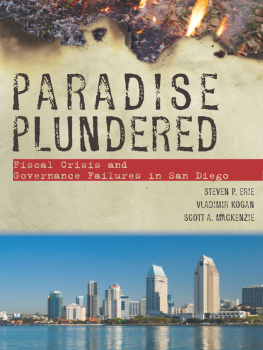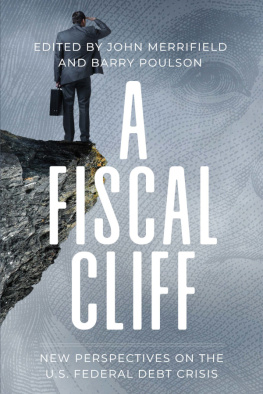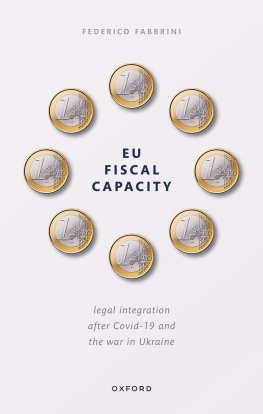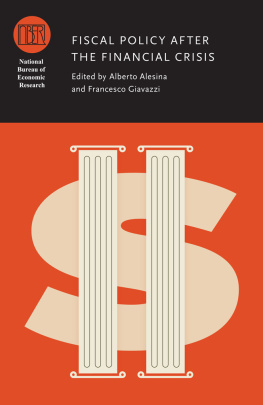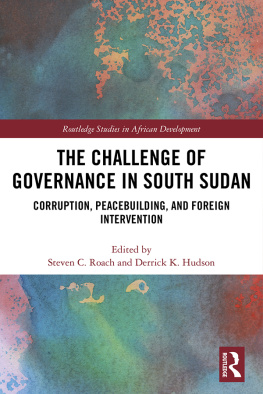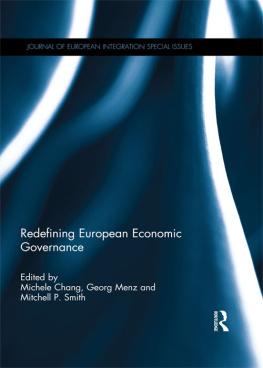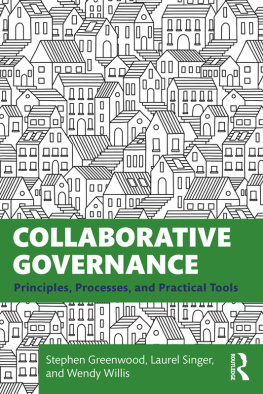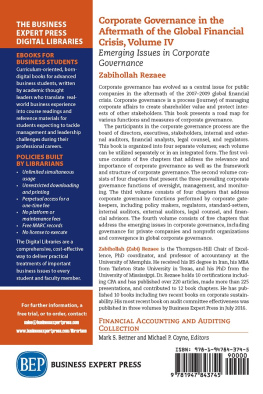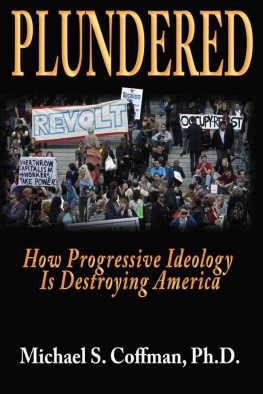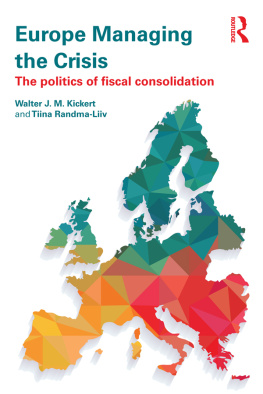PARADISE PLUNDERED
PARADISE PLUNDERED
Fiscal Crisis and Governance Failures in San Diego
Steven P. Erie,
Vladimir Kogan,
and Scott A. MacKenzie
Stanford University Press
Stanford, California
2011 by the Board of Trustees of the Leland Stanford Junior University.
All rights reserved.
No part of this book may be reproduced or transmitted in any form or by any means, electronic or mechanical, including photocopying and recording, or in any information storage or retrieval system without the prior written permission of Stanford University Press.
Printed in the United States of America on acid-free, archival-quality paper
Library of Congress Cataloging-in-Publication Data
Erie, Steven P., author.
Paradise plundered : fiscal crisis and governance failures in San Diego / Steven P. Erie, Vladimir Kogan, and Scott A. MacKenzie.
pages cm
Includes bibliographical references and index.
ISBN 978-0-8047-5602-0 (cloth : alk. paper)
ISBN 978-0-8047-5603-7 (pbk. : alk. paper)
1. Finance, PublicCaliforniaSan Diego. 2. San Diego (Calif.)Politics and government. I. Kogan, Vladimir, 1985author. II. MacKenzie, Scott A. author. III. Title.
HJ9205.S28E75 2011
336.794985dc22
2011015039
Typeset by Newgen in 10/13.5 Sabon
E-book ISBN: 978-0-8047-8218-0
To Clarence N. Stone, mentor and friend
Tables and Figures
Tables
Figures
Preface
The early twenty-first century has not been kind to Californias reputation for good government. With a dysfunctional state government and a soaring budget deficit, the state has become the butt of late-night television jokes. Things have fared even worse for local governments. The City of Bell, a small immigrant community located in Los Angeles County, earned national notoriety for allegations of massive corruption and fraud by city officials. The nearby City of Vernon, in the words of the speaker of the California State Assembly, is a situation where a handful of individuals are able to use an entire city as their own personal fiefdom.
In actuality, the Golden States governance flaws, whether chronic and seemingly irresolvable budget deficits or public corruption, reflect worrisome national trends with origins in the 1970s and 1980s. Growing voter distrust with government and a demand for services but not new taxes to pay for them, a sharp decline in enlightened leadership and effective civic watchdogs, and dysfunctional political institutions ranging from term limits to an initiative process gone awry have all contributed to the current governance malaise.
Some jurisdictions appeared immune to systematic governance disorders. Until recently, such was the case with San Diego, California, Americas eighth-largest city. Lauded by antitax activist Howard Jarvis A pension scandal blossomed into a huge pension liability. With a large and seemingly intractable budget deficit, the city teetered toward bankruptcy. A number of public officials resigned from office or went on trial, charged with corruption and fraud. Horrific wildfires revealed the paucity of public services. Paradise, it seems, had been plundered.
This is a study of San Diegos myriad civic woes. This project began as a political biography of an understudied Sunbelt city. As events unfolded, we sharpened the focus to the City of San Diegos fiscal crisis and governance failures. San Diego, we believe, is a harbinger for dysfunctional state and national trends related to political culture, leadership, and institutions. The project also can be traced to our active involvement in local civic affairs, ranging from debates about the strong-mayor system to thorny issues involving pension and budget policy, redevelopment, water-supply reliability, and airport development.
Many people have assisted us along the way. Most of all, we wish to thank Kathleen Ames, Cheryl Boudreau, and Laura Tate for their love, support, and patience during the many hours of research and writing. We also want to thank Harold Brackman and Rumman Chowdhury for their able research assistance. Scholars and practitioners kindly readand improvedearlier drafts of the manuscript. Erik Bruvold, Nico Calavita, Norma Damashek, Jameson Doig, Iris Engstrand, Earl Fry, Larry Herzog, Dennis Judd, Sandy Lakoff, Phil LaVelle, Paul Lewis, Scott Lewis, Roger Showley, Abraham Shragge, Glen Sparrow, Mike Stepner, Clarence Stone, Ken Sulzer, and Todd Swanstrom offered valuable comments and suggestions. We are also grateful to the many individuals we interviewed who so generously gave of their time and effort. Project support was furnished by the University of California, San Diegos Academic Senate Committee on Research.
Finally, we wish to thank an extraordinary mentor and friend, Clarence Stone, who has contributed so much to the study of urban politics. A dedication is small reward for the encouragement, insight, and wisdom Clarence so generously imparts.
Steven P. Erie
Vladimir Kogan
Scott A. MacKenzie
La Jolla, California
February 2011
PARADISE PLUNDERED
IOverview and Historical Development
Americas Finest City?
Welcome to San Diego, Californias second largest city, where blue skies keep watch over 70 miles of beaches and a gentle Mediterranean climate means paradise every day.
San Diego Convention and Visitors Bureau,
Neighborhood Guide
In the popular imagination, San Diego is a sunny seaside paradise. Touted as one of the nations top leisure-vacation destinations, San Diego aggressively markets itself for an idyllic climate, pristine beaches, a dazzling array of world-class tourist attractions, beachfront resorts and luxury spas, and a vibrant downtown district. Although the beach is a way of life, golf is serious business here, with more than ninety courses offering stunning ocean views, desert sun, or mountain vistas. Local boosters trumpet the immense options for businesssuch as an innovative high-tech industryas well as pleasure in a place that proudly proclaims itself Americas Finest City.
Yet there is a grim and increasingly visible civic reality to San Diego not depicted in slick marketing brochures. It consists of a chronic municipal fiscal crisis, exacerbated in recent years by a pension scandal and multibillion-dollar pension deficit; severely underfunded public services and infrastructure; grandiose plans for big-ticket civic projects divorced from straitened fiscal realities; and a privatized downtown and bay front, the product of poorly crafted and inadequately monitored public-private redevelopment partnerships underwritten by hundreds of millions of dollars of public investment. Paradise, it appears, has been plundered.
The result of San Diegos civic mismanagement is the making of an American Potemkin village
San Diegos civic woes have tangled roots. As far back as the 1970s, the city was an early and eager advocate of limiting taxes and living beyond its means. City officials raided the pension and other revenue streams to pay for big-ticket items while providing a semblance of public services that tax-averse residents demanded but did not want to pay for. At the same time, voter-approved initiatives at the state level, the culmination of a nationwide tax revolt, erected crippling barriers to local governments ability to raise new revenues. These changes also empowered small but impassioned minorities to block future efforts to raise taxes, thus exacerbating the tenuous financial position of cities like San Diego. To go along with its free lunch political culture, San Diego scores unexpectedly low on social capital metrics, with residents displaying low levels of trust in local government and high levels of political ignorance and apathy. As a former local reporter observed, To win over San Diegans, you have to let them sit back and do nothing and then congratulate them for doing it.


